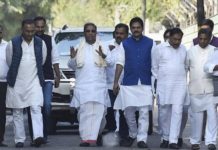People all over the world are different. In some countries, the whole nation will speak one language and even share a common faith. There is a country that will consist of over fifty ethnic groups and another that will be wholly of one tribe, just different sects. The tongue each person speaks, along with his genetic lineage serve as his or her race. Race makes people distinct from each other in belief, skin color, and eye color among other discernible attributes. In the end, a person’s race may determine how he or she treats others and how he or she is treated in return.
Racial profiling is an instance whereby race determines an individual’s quality of life. It is a form of racial discrimination, but with certain preset beliefs coming into play. In short, racial profiling is just a generalization.
There are many examples of how racial profiling occurs in various parts of the world and below are just a few examples.
Instances of racial profiling in the US are many. It is only inevitable that there will be given the country’s wealth of diversity. When you are in the US, you are likely to meet with Caucasians, African-Americans, Asians and Latinos. These are the four major races you will find in the States if you move past the Arab Americans and European immigrants. Over the years statistics have proven time and again that these groups are treated differently when it comes to following the law.
To be fair, Latinos and African Americans seem to make up the majority of the prison populace according to law enforcement officers. It is unclear however whether the larger figures are causative or resultant factors of racial profiling. Police officers are required to go out on the street daily to find and hopefully prevent troublemaking. Part of their jobs, therefore, involves an element of profiling. They look at an individual and think yes, that one is likely to cause trouble. In the US racial profiling is evident in a large number of cases, where Latinos and African Americans were the ones labeled ‘most liable to cause trouble.’ When an authority gets this in his or her mind, he or she will be more likely to arrest or search a Latino man for possession of a drug or an African American woman for alleged theft when compared to Caucasians of the same genders.
Similarly, an African policeman is more likely to harass or be extremely agreeable to a Caucasian foreigner when compared with an African alien. Harassment may be because foreigners in that nation are associated with colonialism while favoritism may come into play when foreigners are considered rich. Whatever the case, racial profiling poses a significant problem in most countries.
What’s the danger of Racial Profiling?
Racial profiling has several impacts, majorly social and economic ones.
Social Impacts
Backtrack to the US forms of racial profiling. If police officers believe that African Americans or Latinos are more likely to participate in criminal activities, what happens?
For one, there is an immense loss of innocent life. The US has seen some horrific evidence of this. In 2016, a black boy was suffocated to death by a white police officer in a video released to the media. In the same year, another white law enforcement officer shot a black teenage boy as he ran for his life. In more recent news two Caucasian officers held down an allegedly armed African American male and shot him, leaving him dead. His name was Alton Sterling. In yet another case a sixteen-year-old black boy saw his younger brother shot in the head as they were in a vehicle. The list goes on, highlighting without a doubt the prevalence of racial profiling within American police departments.
In each of these cases, the families of the young men blamed the white-majority police force for the boys’ deaths. Hatred against Caucasians in general and police officers in particular fostered. Evidence of this is the increased number of police officer deaths since the Alton Sterling shooting. Additionally, the black community came to further mistrust their white ‘protectors.’ Cooperation between the two parties became strained leading to more unreported crime and more violence. Were you African American in a store that had been burglarized, you would not have come forward because racial profiling would dictate you to be the most obvious suspect.
In the midst of escalated community tensions would be more violence, increased mistrust, greater retaliation and higher death tolls.
Economic Impacts
Every loss of life usually has a monetary tag attached to it. Loss of life in one’s prime or youth results in loss of physical labor in a country and therefore, in more unstable economies.
Also, in some cases, the officers who perpetrate the shootings are usually relieved of employment. In other situations, the racial profiling victim who is arrested or killed was the breadwinner in the family. Both cases leave families to contend with a loss of income as an indirect result of racial profiling.
Families of racially profiled victims may sue the police departments that perpetuate the discrimination. At other times a person who has received an inferior service at a store, restaurant or other business because of his or her race may file a suit against that firm. In such instances, both parties may suffer losses. The families might use thousands of dollars suing departments that may end up paying millions in damages and settlements. An individual would lose money to lawyers’ fees while the business’s reputation and finances could take a dive.
Whatever the reasons were given to defend racial profiling, one thing is clear. Racial profiling does a lot of harm to the individual and the community. It drains the workforce, encourages contention and ultimately results in a weaker nation either because of lack of a diverse cultural perspective or because of a weaker economy. There is need to stop racial profiling in diverse cultures because its practice results in the perpetuation of its adverse effects.




